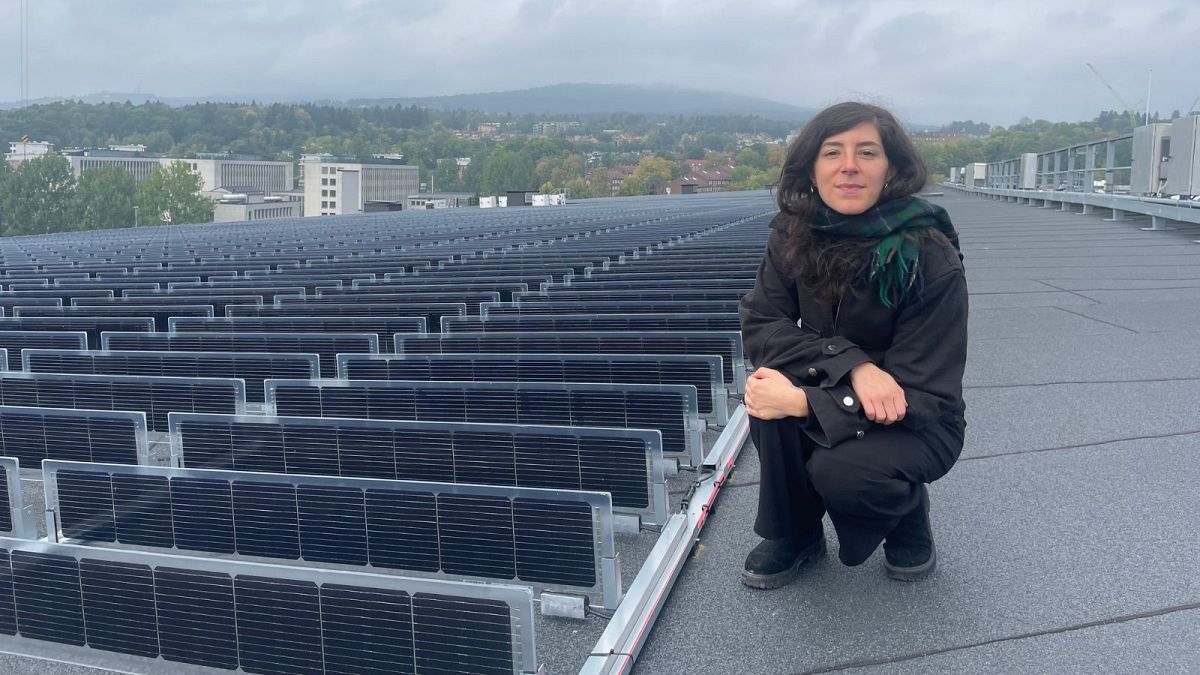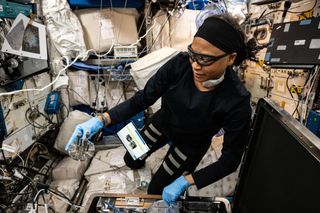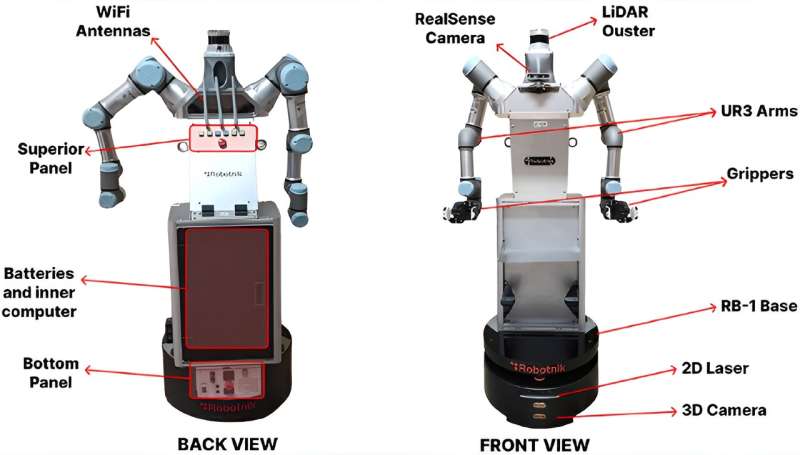Vertical solar panels are proving to be a new solution for northern regions, yielding 20 per cent more energy than traditional panels.
Category Archives: Tech
Astronauts 3D-print first metal part while on ISS | Space
The accomplishment “paves the way for long-distance and long-duration missions where creating spare parts, construction components, and tools on demand will be essential.”
Source: Astronauts 3D-print first metal part while on ISS | Space
Pulsed plasma rocket (PPR): Shielded, fast transits for humans to Mars
The exceptional performance of the PPR, combining high Isp and high thrust, holds the potential to revolutionize space exploration. The system’s high efficiency allows for manned missions to Mars to be completed within a mere two months.
Source: Pulsed plasma rocket (PPR): Shielded, fast transits for humans to Mars
Monday Musings — 29APR24
Well, it’s been a couple of weeks. Been sick. I was actually in the hospital last Monday. I fainted due to some med changes, and all my blood work numbers were BAD on Friday the 19th. Been home a couple of days, with more med changes and feeling okay so far. Let’s say that having Multiple Myeloma, and a heart condition sucks ass.
Here’s an artist I never heard of before. Love his work, go explore his site.

https://jesscollins.org/paintings-romantic
Here’s another cool artist: https://yinkashonibare.com/

So to change the subject for a second; electric vehicles. Talking about rickshaws or 3 wheel electric bikes, and how in some places they are leaving EVs in the dust. https://restofworld.org/2024/e-rickshaw-yc-electric-india
I think a city (this doesn’t work quite as well for rural areas)that has a mix of electric bikes, trikes, rickshaws, and EVs, plus public transportation that’s reliable, sounds like a great place to be. If I had an electric trike (not a bike for me, my balance isn’t that great) I could be a bit more independent. I could get a little exercise without over stressing my body, and go to stores and restaurants and be outside a bit more (except in winter, here). This would help a lot of seniors also.
Well that’s it for today, back next Monday for more stuff. Keep your powder dry, and remember solutions are everywhere. Just got to turn over the right rocks.
A novel elderly care robot could soon provide personal assistance, enhancing seniors’ quality of life
Looking ahead, the researchers observe, “The perception system is fixed, so in certain situations, ADAM will not be able to detect specific parts of the environment. The bimanipulation capabilities of ADAM are not fully developed, and the arms configuration is not optimized.” In addition to focusing on improvements in these areas, they write that “new task and motion planning strategies will be implemented to deal with more complex home tasks, which will make ADAM a much more complete robot companion for elderly care.”
Monday Musings–19FEB24
Read two books this week. Both on just about thesame subject. The first Grunch of Giants, was. published in 1981 and is more for historical value, But Bucky got a lot of stuff right, although this book was not about solutions. He alludes to his previous book Critical Path (or https://archive.org/details/LIBRORBuckminsterFullerCriticalPath/page/n29/mode/2up) for those.

Examines the evolution of multinational corporations, from the military-industrial complex of the postwar period to the present world economic crisis, and evaluates the economic and political impact of such entities on the American and international economic systems
You can get this book at Amazon (Kindle) or as a free download at Archive .org
The other book is Cory Doctorow’s The Internet Con. which you can get at various places:
The platforms locked us into their systems and made us easy pickings, ripe for extraction. Twitter, Facebook and other Big Tech platforms hard to leave by design. They hold hostage the people we love, the communities that matter to us, the audiences and customers we rely on. The impossibility of staying connected to these people after you delete your account has nothing to do with technological limitations: it’s a business strategy in service to commodifying your personal life and relationships.
We can – we must – dismantle the tech platforms. In The Internet Con, Cory Doctorow explains how to seize the means of computation, by forcing Silicon Valley to do the thing it fears most: interoperate. Interoperability will tear down the walls between technologies, allowing users leave platforms, remix their media, and reconfigure their devices without corporate permission.
Interoperability is the only route to the rapid and enduring annihilation of the platforms. The Internet Con is the disassembly manual we need to take back our internet.
Even direct from Cory himself: https://craphound.com/shop/
Cory has more of a solution to the problem than Fuller, which at this is more historical than something you could use in this era,and the book is highly recommended.
I’ve given you links to 2 versions of the books that you can get as EPubs. Some of you may not know how to read these on a kindle. Well it’s fairly easy, here’s the page on Amazon that explains it. https://www.amazon.com/gp/sendtokindle/
That’s it for me this week. Don’t forget to put pants on when you go outside.
Watchmaking: Machining a 0.6 mm Screw – YouTube
Maintenance Is Sorely Needed In The Fight Against Global Warming
The noble but undervalued craft of maintenance could help preserve modernity’s finest achievements, from public transit systems to power grids, and serve as a useful framework for addressing climate change and other pressing planetary constraints.
Source: Maintenance Is Sorely Needed In The Fight Against Global Warming
Maintenance isn’t a program. It’s a practice. Melvin Kranzberg, the former president of the Society for the History of Technology, once wrote that “technology is neither good nor bad, nor is it neutral,” which is to say that its value is always contingent, even as certain technologies have their own internal logic that must be accounted for. The same goes for maintenance or sustainability, or any mental framework. Climate change and resource scarcity are real phenomena, but they must be addressed in the full context of other social aims, such as a given standard of living — or in the case of maintenance, a state of repair
Renting Instead Of Owning, And Taking It To The Extreme : NPR
I embedded the audio of this below (it’s from All Things Considered) but here’s a link to the article: The Affluent Homeless. Could this be our distributed, sharing future? I find it interesting that not everyone needs to own things. I would love to see an in depth article on this trend.
Made of AWESOME!
Black Sabbath and Tesla Coils; it’s like they were made for each other.





